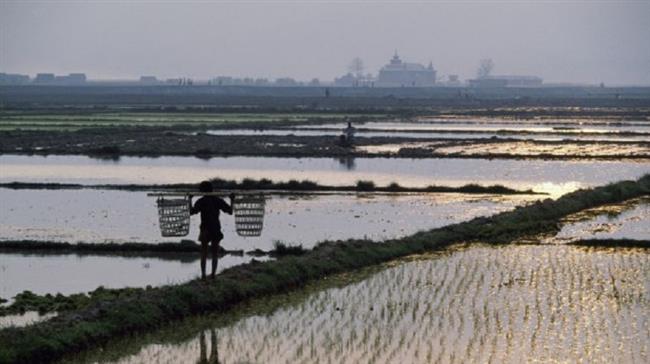
RNA - The New York-based rights group said in a new report released on Tuesday that Myanmar's government "should promptly address illegal land confiscations, compensate aggrieved parties, and reform laws to protect people against future abuses."
Over the past three decades, the government and military officials in Myanmar have seized vast swathes of land from farmers "while providing them no or inadequate compensation," the 33-page report said.
Phil Robertson, the deputy Asia director of Human Rights Watch, said, "Widespread land confiscations across Myanmar have harmed rural communities in profound ways for decades."
"The Myanmar government needs to provide redress for victims of past unlawful confiscations and ensure that new laws safeguard the rights of farm families in the future," he said.
Dozens of farmers in the state of Shan, as well as Ayeyarwady and Yangon regions, described a loss of livelihood, access to healthcare and children's education in the report.
Land confiscation in Myanmar became a major issue under the previous military government, with estimates of as many 800,000 hectares or more of land seized from farmers without compensation.
Farmers or other civilians who refused to leave confiscated land often faced criminal prosecution.
The international rights body has denounced the land reforms carried out by Myanmar's de facto ruler Aung San Suu Kyi in recent years as ineffective, saying thousands of farmers' claims remained unresolved.
"Hundreds of farmers across Myanmar, fed up waiting for the return of their lands or receiving compensation, have been prosecuted for organizing and participating in public protests against the government or for trespassing by farming the land they claim," the report said.
According to Press TV, Human Rights Watch also called on Myanmar's government "to stop arbitrarily arresting land rights activists" and immediately release all those who were awaiting trial for peacefully protesting against land seizures. It also urged donor countries not to be "fooled by the flurry of proclaimed land reforms."
In March, Amnesty International revealed that Myanmar’s military forces were building army bases in locations where Rohingya Muslims used to live before a campaign of state-sponsored violence drove them out.
“What we are seeing in Rakhine State is a land grab by the military on a dramatic scale,” Tirana Hassan, Amnesty’s crisis response director, said in a statement on March 12. “New bases are being erected to house the very same security forces that have committed crimes against humanity against Rohingya.”
847/940